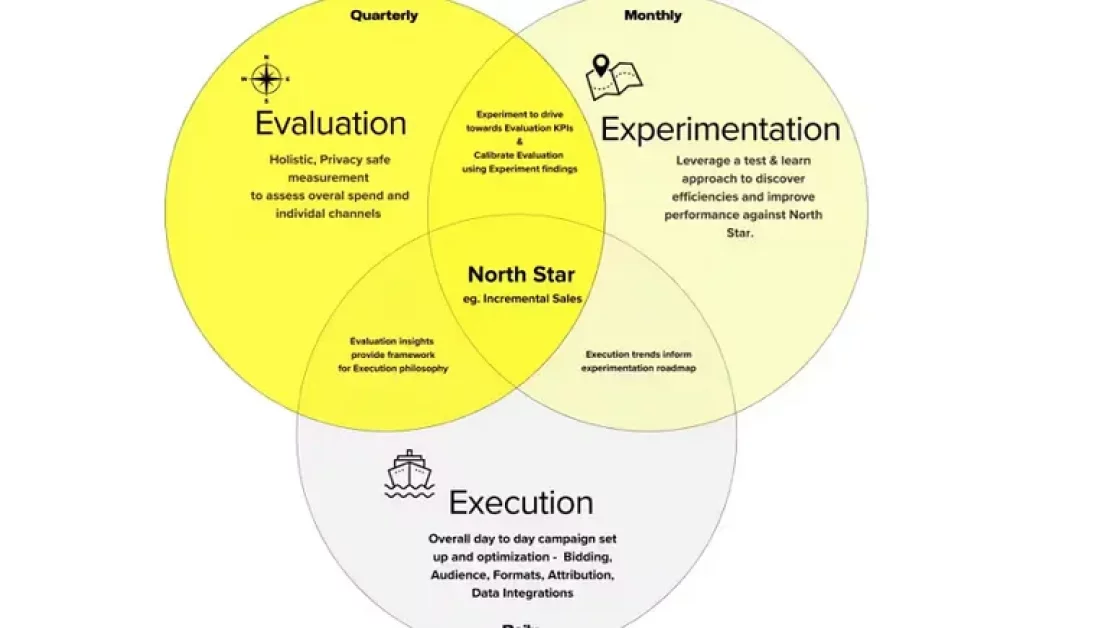Amid large-scale changes to digital marketing measurement, Snapchat has today outlined its “Three E’s” approach to advanced campaign assessment, and how marketing teams can apply this to ensure that they continue to accurately track performance in a privacy-friendly way.
According to Snap, “Execution, Experimentation and Evaluation” are the key parameters for evolving strategic measurement, which it outlines in this chart,
As you can see, Snap’s “Three E’s” approach aims to focus marketing teams on these elements in combination, in order to ensure accurate tracking of actual performance.
As explained by Snap:
“You can think of our three E’s as if you were navigating a ship, where Evaluation is the compass that guides your decisions, Experimentation is the map that helps you course correct and find efficient routes and Execution is all the components of the boat that power it everyday. Advertisers who adopt this robust measurement approach see better advertising outcomes.”
In practical terms, Snap’s structure is fairly basic, in that you test, learn, iterate and assess, in a constant cycle, in order to keep refining and improving your campaign performance.
But it’s the assessment element, really, that’s the key focus in revising your strategy for modern shifts.
“A great example [of assessment] is Media Mix Models – they quantify the incremental impact of paid, owned and earned marketing and non-marketing activities on a pre-defined KPI such as sales or web visits. They account for both short and long term impact of advertising across both online and offline media. They are also privacy compliant as they leverage sales data instead of user-level information.”
Brand lift studies and A/B testing are other methods for testing campaign performance, and in combination, Snap says that these are crucial educational and informational elements.
“Picking the right experiment method and KPIs are crucial to driving success. But where brands often go wrong is prioritizing easy accessible correlation metrics over causal experimentation KPIs. If experimentation is not anchored on driving towards the evaluation KPIs, then media optimization may be driving negative progress away from actual bottom-line results.”
Snapchat says that it works to provide various data points on each front, in order to help marketers make more informed decisions about their campaigns, and refine their performance.
These are the building blocks of Snap’s “Three E’s” approach, and in combination, Snap says that brands will be better equipped to improve their approach based on a broader set of data points, which feed into one another, as opposed to incorrectly focusing on just one aspect.
These are some interesting notes, which could help to improve your strategy.
You can check out Snap’ full “Three E’s” overview here.



